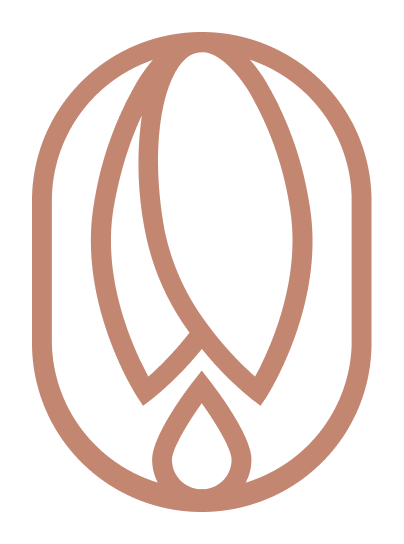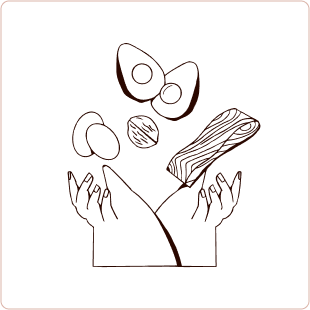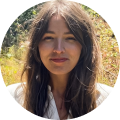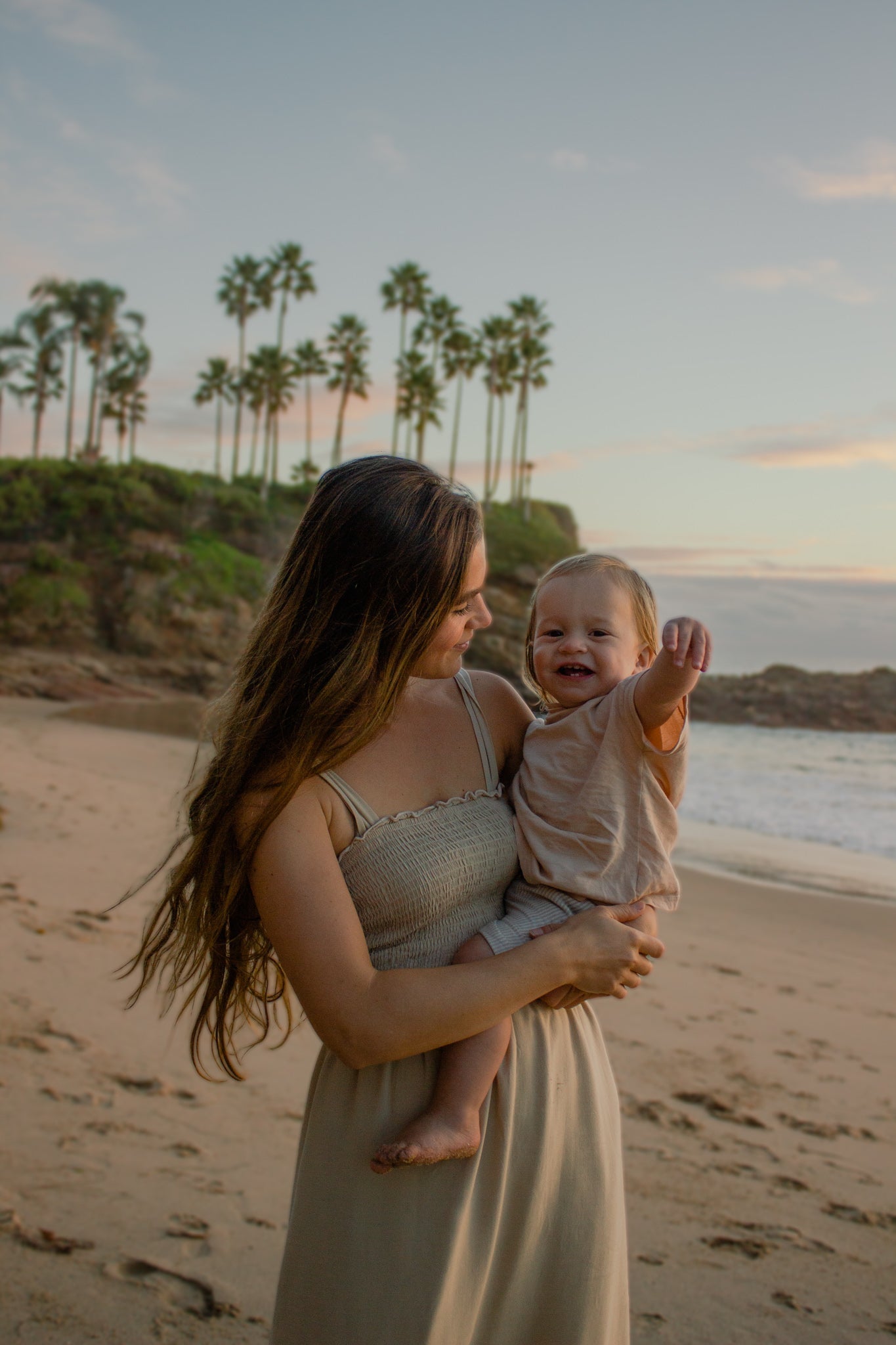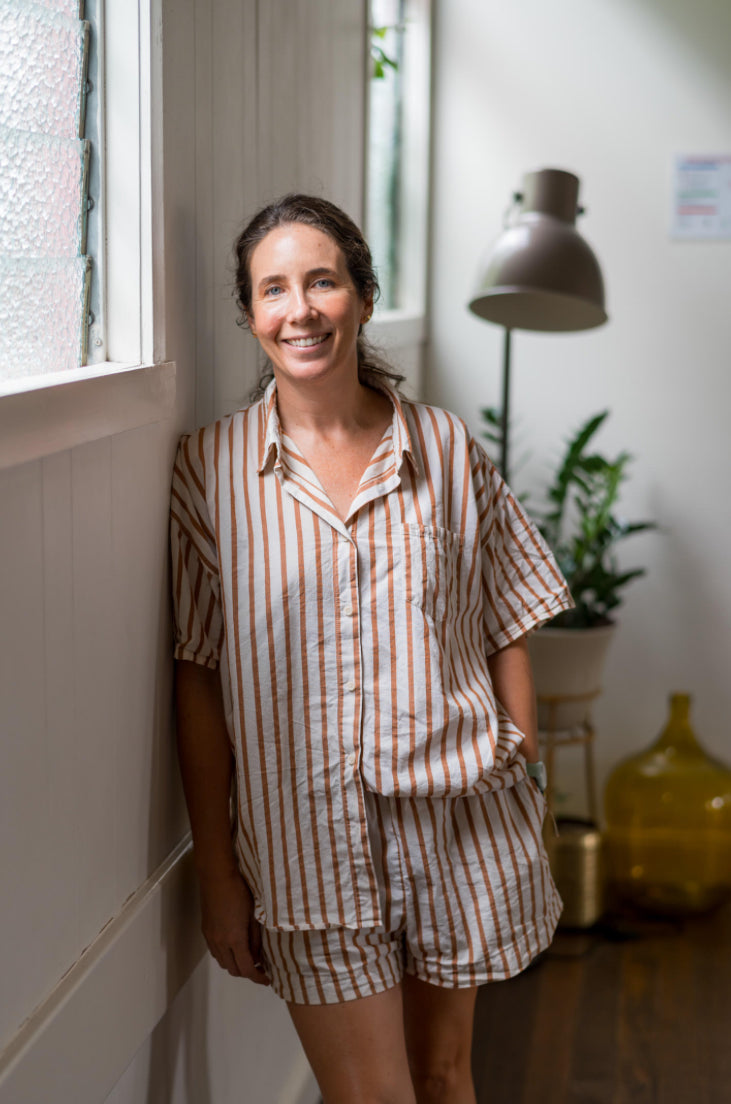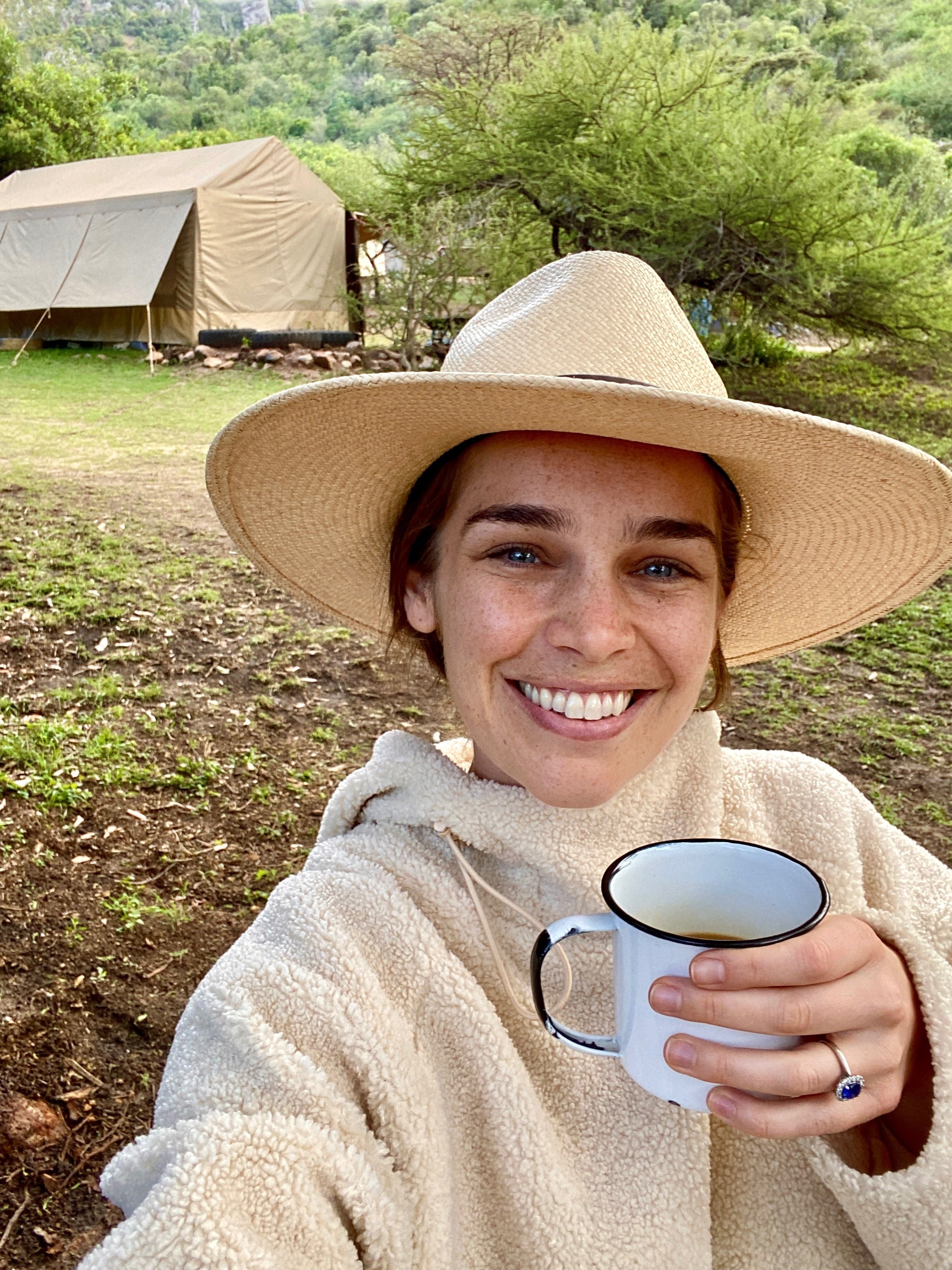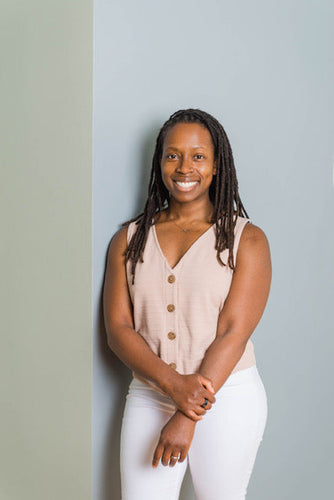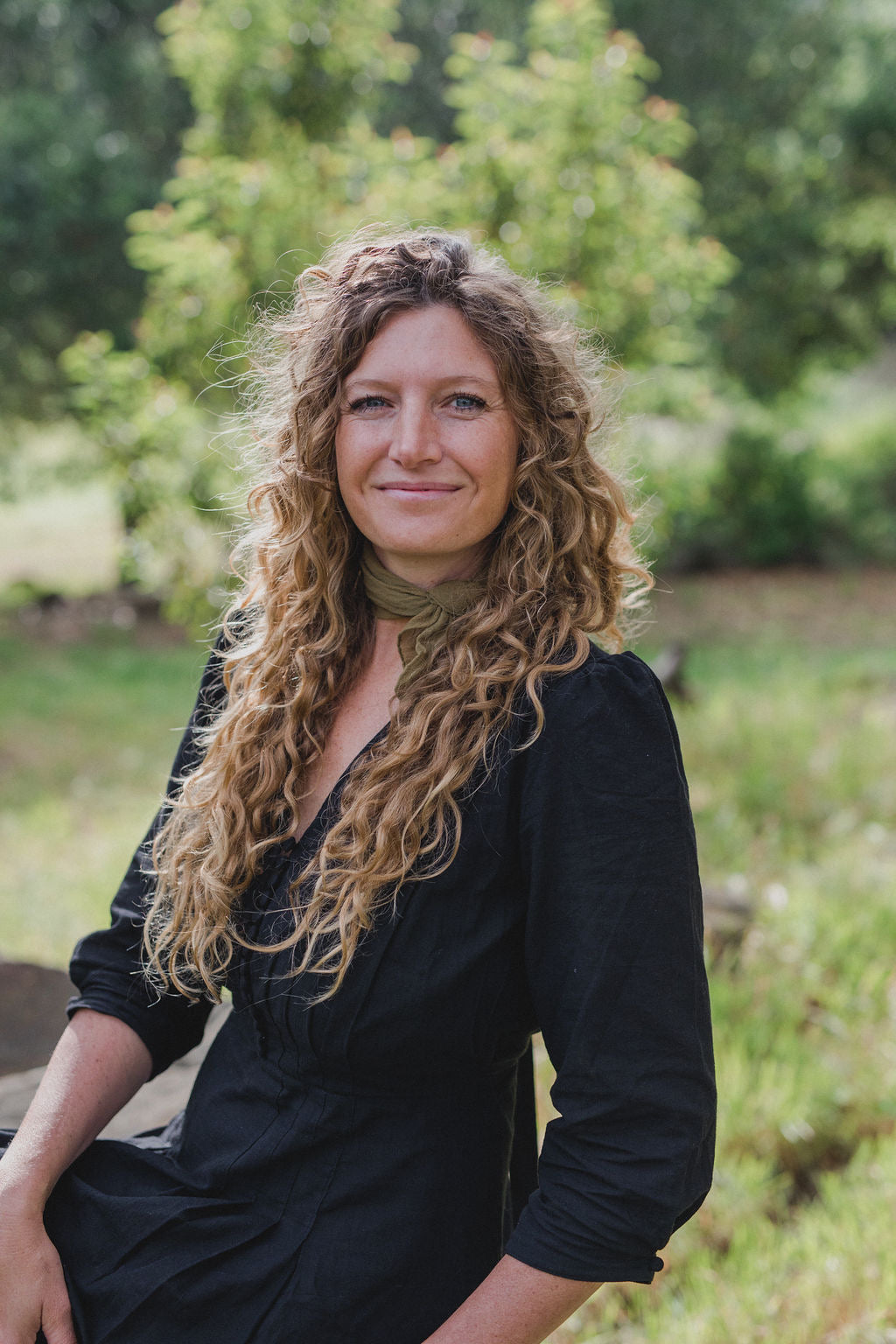I love being in nature and I’m so happy to live near the mountains. I grew up in this same town and the mountains feel like “my” mountains. There’s so many beautiful trails and when I take a moment to think about my favorite place, I see myself on a warm day walking along the creek, climbing over rocks and making my way to a big waterfall; the sun is out but the canopy of trees gives a cool feeling and my feet and hands end up dirty with mud. My body is moving but my mind is clear and calm.
Whole body yes to that! Thanks for that nugget. So, reading your bio gave me the chills – honestly. I felt so steeped in goodness, truth, and vitality that I couldn’t help but feel taken care of by you in some way. That said, I am really intrigued by your cultural background and how, paired with your extensive knowledge from trainings, certifications, degrees, and what I also assume to be innate, plays a role in your full spectrum doula work with sunbirth. Can you touch on pieces of this for us?I’m honored that you feel that way, truly! That made me feel warm. My cultural background is diverse; my mom is Swedish and my dad is Afro-Indigenous. Growing up, I’ve had a strong interest in different cultures–our differences and our similarities, but mostly our histories. What has made us who we are today? My parents did a good job of initiating that interest within me, but it flourished as I grew into being a young woman and my perspectives were influenced by feminist literature and learning my perceived place in the world. Anthropology, history, and social sciences are all things I studied in and out of school but I didn’t see a clear path to birthwork initially. I thought that in my elder age I’d become a midwife, but when I inadvertently found myself doula-ing others, I had a full-circle moment. What has made us who we are today–historically, culturally, socially–is certainly grounded in the Mother and those that have held and supported Her. In a tangible way, I apply my personal and educational background in my practice as a doula through modalities of support that are rooted in my cultures, but the essence of Mothering the Mother is at the core. And the illuminating thing is that it’s not just ancestral for me, it’s ancestral for everyone.
Within your offerings you share “sunbirth was born out of the will to heal. Believing in the Chukchi proverb, Woman is by nature a shaman & "I hold that healing begins with women and families, and all with the warmth of the sun". Can you share what it means to be a shaman? I recently began reading The Woman In The Shaman’s Body” per your recommendation and have to say I feel so enamored with these ideologies and practices for healing. In what ways do we get healing, wellness, birth, postpartum, and motherhood wrong in our modern world? How can we implement some of these more spiritual healing modalities?My interpretation is that Shaman is one who is connected to Spirit and divination. The Chukchi proverb echoes in my mind often, because I truly believe that Women and those who menstruate cyclically, carry life, give birth, and raise children are in a perpetual state of heightened spirituality. I think that the lack of awareness and reverence for this is what we get wrong in our modern societies. The most evident way of this is separating the Mother from her intuition. We’re in a cyclone of tons of information and science and opinions on the best way to be a parent, and it is not often that we stop for a moment and encourage people to truly meditate on what their intuition is guiding them to do. I encourage all people going through these ceremonies to lean into meditation, support circles, breath work, and so on. These are simple ways that even the least “woo woo” person might find helpful to quiet the noise and to hear their inner intuitive Self, from preconception through parenthood.
Your preconception and fertility offerings under the umbrella of full spectrum doula support is something that I’d love to talk about. You mention having trained at “Womb School”. What is womb-centered health and wellness? Do you have a starting point or tip for someone who is interested in deepening their relationship with their womb?My interest in fertility awareness is what initiated me into a deeper interest in birthwork. It is one of the most incredible tools that I think everyone should have an awareness of, even if opting to not utilize it themselves. I view it as information that our own bodies are giving to us, so I often support people through understanding it for no cost.
I definitely feel like having awareness of your fertility and cycles is the ideal starting point for getting deeper into womb-centered wellness. This is a very holistic mindset, but the womb holds so much; emotion, knowledge, history, etc. For those with wombs, it is one of our body’s biggest communicators, but so many people aren’t aware of this or told that it’s not important. The way that we feel during each stage of our cycles, the intensity and color of our menstruation, pain or discomfort in the pelvic floor–these are all things the body does to communicate with us. When we develop an awareness of it, we start to nurture a mindfulness of the intricacies and we can make informed decisions. People will chart their cycles with a symptothermal method and bring their charts to their doctors, letting them know exactly what is going on. Others will change their diet based on each cycle phase to improve mood and energy. Sometimes an issue or concern is related to emotional wellbeing, and womb massage, yoni steaming, and meditation are helpful.
After you became a mother to your first child, Omni, what shifted? What was your postpartum experience? How did you set yourself up during this time?
I had wonderful support from my midwife, Debbie Allen, and my postpartum doula, Synmia Rosine. I think of my early postpartum time and the word gentleness comes to mind. I tried to be gentle with myself physically and connect to my intuition, and having the support of both of them helped nurture that. I had the comfort of our bed and warm meals. It wasn’t this idyllic Instagram postpartum experience, but it was real and I find beauty in it. I know that naturally those early days weren’t easy, but I think of it now and I feel proud of myself for tapping into my intuitive Self and letting that guide me as everything was shifting. As a doula, I’m used to embodying the role of the helper. I struggled with leaning on help from others and even had difficulty vocalizing that I needed support. My emotions felt both primal and community-oriented. I did not want to be seen or want others to be near my new baby, but I longed for community and needed help.
By the way, Omni is such a beautiful name. How did you land on this and what do you think a name signifies within us as individuals throughout our lifetime?Eventually I found balance and confidence, but more importantly I found a flow. A gentle, non-judgmental, intuitive flow.
Thank you! I was set on a different name, but my partner wasn’t vibing with it. I was approaching being full-term and we sat down and started to discuss a name more seriously. He’s Igbo and it’s common for some Nigerians to name their children words. So when we were brainstorming, he started to say words to get our thoughts going. He said Omni and we both lit up. His middle name is Sol, which means Sun in Swedish, and his Igbo name is Chinomso, which means God is near. To me, his name means Everything. He is my Sun.
I honestly didn’t give much thought to the importance of our names before naming a person. But now I think of this often; our names feel like roots that hold us in place, that guide us and that inform us. My name means God is my judge, and I take comfort in remembering that, especially when feeling emotional about the world or my place within it.

To me, it means holding space and reverence for the process. And, if it aligns with the family, holding space for the spirituality of giving birth. Birth exists somewhere between the ordinary and the divine. It’s the ceremony of life, of shedding and renewing, of beginnings. Some people intend to embody this with a serene birth environment, and others will initiate cultural traditions during or right after giving birth. Some might not do anything that feels ceremonious. But it all is; it is an incredible, monumental thing. And holding it as a ceremony is to honor it for all that it is.
Thank you so much for sharing all of your insight with us. I’d like to end with a visionary question. On your perfect vision board of the world, what does modern motherhood, birth and early postpartum look like?What comes to mind is women of all ages, some with graying hair, some girls just on the cusp of menarche. And we’re together laughing, happy, listening, and carefree. There’s a feeling of affirmation and an eagerness to learn. The young teach the old, the old teach the young. It feels calm and safe. It’s a community of support. As I’m thinking of this, I’m reminded of an affirmation I tell myself when I feel like I don’t know what I’m doing as a parent: I learn as I teach.
